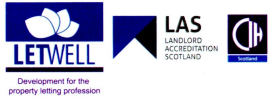When opportunity knocks, it’s not always clear whether to say yes or no, particularly when it’s unexpected or means changing your plans.
Selling to your tenant could be one of those times, and even if you’re planning to be a landlord for life, it doesn’t mean you’ll never change your management style or the properties you own.
But is selling to your tenant the best decision for you, and how do you know you’ve made a great deal? There’s plenty to consider before shaking hands, including:
- How much will selling actually cost you?
- Setting a clear timescale and terms.
- Ensuring you sell for the best possible price.
- Getting the sale over the line.
- Ending the tenancy correctly.
You’ll find tips and tricks for all of that in our blog this week so you can decide whether selling to your tenant is the right choice for you – not just for now, but for your long-term financial freedom.
WHAT WILL SELLING COST YOU?
Selling to your tenant can be an opportunity that opens new and unexpected doors, but it’s still worth taking the time to decide if you really do want to sell.
If the answer to that is yes, the next step is looking at which of the following costs you’ll need to pay to see if selling is worth your while.
- Commission to your letting agent if you sell to a tenant they introduced, along with solicitors fees and early repayment charges on your mortgage.
- Loss of income and any future increase in your property’s sale and rental values, along with giving up an asset to refinance and expand.
- Capital Gains Tax, which can be pretty hefty given the recently reduced tax-free allowance and if you’re already a higher-rate taxpayer (or become one by the act of selling).
- Stamp Duty and the second home supplement if you plan to buy another rental home, along with more legal costs, mortgage application fees, and any improvement works.
After you’ve added up all the costs that apply to you, the question to ask is whether selling to your tenant now will make you better off than keeping your investment and income for the long term.
ARE YOUR TIMESCALE AND TERMS CLEAR?
Selling to your tenant can help you avoid any repairs, decorating and contractors you might need when putting your property on the market, and remove the uncertainty over when you’ll find a buyer.
At the same time, it’s worth considering the following before jumping in:
- Does your tenant want a discount in return for paying you thousands of pounds in rent? There’s no harm in them asking, but remember that the tenancy and selling price are entirely separate.
- Even if you have a great relationship with your tenant, make sure you agree a timeframe with them so things don’t drift through being too relaxed and familiar.
- Confirm that your tenant is in a position to buy your property by asking to see their mortgage agreement in principle, along with bank statements to show they have the deposit money.
- Make it clear that the rent is still payable monthly in advance until the day the sale is completed, until and unless you agree otherwise.
Ultimately, you need to be as sure as possible that the convenience and certainty of selling to your tenant is as good as it seems and doesn’t have any hidden surprises or misunderstandings.
ARE YOU GETTING THE RIGHT PRICE?
Your tenant’s idea of a fair price for buying your property could be different to yours, so it makes sense to get some expert and neutral guidance on a reasonable figure.
Depending on how your property was rented out, you have a number of options.
- If your letting agent also deals with sales, they’ll be able to give you an accurate idea of how much you should sell for.
- If you’re using a letting-only agent or you’ve rented your property privately, get the opinion of two or three local estate agents.
- Ask each agent to back their valuation up with evidence of recent sales to be sure they’re accurate (and not over-inflated to get your business).
- Alternatively, you could go halves with your tenant on the cost of an independent valuation from a qualified RICS surveyor.
However you get your property valued, negotiating a price from an informed position is the best way to avoid anyone getting cold feet later on.
PUSHING THE SALE OVER THE LINE
Agreeing a price is only the start of a sale, and there’s a lot to do to get your tenant over the line to exchanging contracts, so it’s a good idea to set aside time in your week for things like:
- Checking that your tenant has submitted their mortgage application, paid their valuation fee and whether they’re also having (and have booked) an independent survey.
- Following up the mortgage process to a formal written offer being issued, from chivvying up delayed paperwork and references to handling snags like a down-valuation or retention of funds.
- Regular chasing up to keep the legal work on track – remember that the seller can’t speak directly to the buyer’s solicitor, so you’ll need regular updates from your own solicitor or tenant.
Given the need to stay on the case, you might prefer an estate agent to handle the sales progression for you at a fee that reflects a buyer already being in place.
As well as liaising with both solicitors, agents can act as a buffer and mediator in case of any hiccups or further negotiations, and keep you informed of progress while you get on with life.
HOW DO YOU END THE TENANCY?
After you’ve exchanged contracts, the final stage of selling to your tenant involves a few formalities to bring the tenancy to an end with a clean and tidy finish.
- Arrange the return of the security deposit (are you refunding all of it, or did you pay for any repairs during the tenancy that were the tenant’s responsibility?)
- Check whether you’re due a refund from your management fees (for instance, if you paid a year upfront or the sale is due to complete between rent payments).
- Cancel any insurance policies relating to the tenancy, including rent protection, public liability and landlord contents, along with your buildings insurance.
As for the tenancy agreement, this will naturally terminate when the sale completes, so there’s no need for either of you to give notice. Time to hand over the keys!
Are you thinking of selling to your tenant?
If you want to be sure you’re getting the best deal, or you’d like some expert support in getting the sale through, we’re here to help.
Whatever you’d like to know, call Richard Cook on 0790 909 3141 or email him at richard.cook@fifeproperties.co.uk for a friendly and expert chat.


